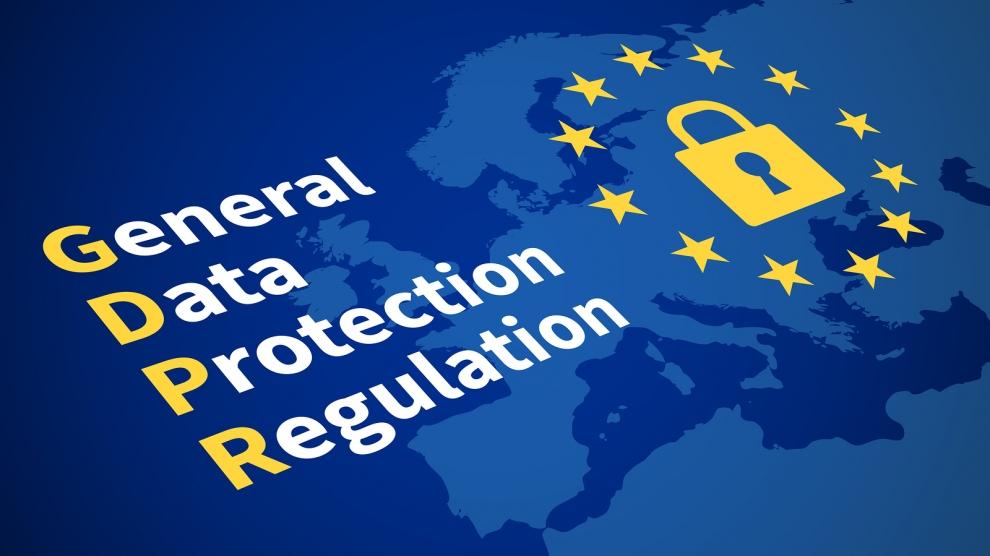In the intricate tapestry of global finance, where every thread is woven with precision and intent, the introduction of the General Data Protection Regulation (GDPR) in 2018 sent ripples that transformed the very fabric of the industry. Like a maestro conducting a symphony of compliance, GDPR has orchestrated a new era of data protection, compelling financial institutions worldwide to rethink their strategies and operations. This regulatory titan, born from the European Union’s commitment to safeguarding personal data, has transcended borders, influencing financial ecosystems from Wall Street to the bustling markets of Asia. As financial institutions grapple with the dual challenge of ensuring compliance and maintaining competitiveness, the impact of GDPR unfolds as a narrative of adaptation, innovation, and resilience. This article delves into the profound effects of GDPR on financial institutions globally, exploring how this regulation has reshaped data governance, customer trust, and the future of financial services in an increasingly interconnected world.
Navigating the Compliance Maze Understanding GDPRs Core Principles for Financial Institutions
In the intricate world of financial services, the General Data Protection Regulation (GDPR) has emerged as a pivotal force reshaping data management and privacy protocols. For financial institutions, understanding the core principles of GDPR is not just a regulatory requirement but a strategic imperative. Transparency and accountability are at the heart of GDPR, compelling institutions to reassess how they handle personal data. This means not only securing data but also ensuring that data subjects are fully informed about how their information is used.
Financial institutions must embrace the following GDPR principles to navigate the compliance maze effectively:
- Lawfulness, Fairness, and Transparency: Institutions must process personal data in a manner that is lawful, fair, and transparent to the data subject.
- Purpose Limitation: Data should be collected for specified, explicit, and legitimate purposes and not further processed in a manner incompatible with those purposes.
- Data Minimization: Only data that is necessary for the intended purpose should be collected and processed.
- Accuracy: Personal data must be accurate and kept up to date, with every reasonable step taken to ensure that inaccurate data is erased or rectified without delay.
- Storage Limitation: Data should be kept in a form that permits identification of data subjects for no longer than necessary.
- Integrity and Confidentiality: Personal data must be processed in a manner that ensures appropriate security, including protection against unauthorized or unlawful processing and against accidental loss, destruction, or damage.
By embedding these principles into their operational framework, financial institutions can not only ensure compliance but also build trust with their clients, ultimately fostering a more secure and transparent financial ecosystem.

Unveiling the Ripple Effect How GDPR Reshapes Global Financial Practices
The introduction of the General Data Protection Regulation (GDPR) has sparked a profound transformation in the financial sector, echoing far beyond the borders of the European Union. Financial institutions worldwide have been compelled to reassess their data handling practices, ensuring compliance with stringent data protection standards. This shift has not only fortified data privacy but also fostered a culture of transparency and accountability.
- Enhanced Data Security: Financial institutions have adopted robust security measures to protect personal data, reducing the risk of breaches and cyber threats.
- Increased Operational Costs: Compliance with GDPR necessitates significant investment in technology and training, impacting the financial bottom line.
- Global Standardization: GDPR has set a benchmark for data protection, influencing legislation in other regions and prompting a move towards global standardization.
- Consumer Trust: By prioritizing data privacy, financial institutions are rebuilding trust with consumers, who are increasingly aware of their data rights.
Ultimately, GDPR has not only reshaped financial practices but also redefined the relationship between institutions and their clients, emphasizing the importance of ethical data management in the digital age.

Data Protection in the Digital Age Strategic Approaches for Financial Institutions
The General Data Protection Regulation (GDPR) has profoundly reshaped the landscape for financial institutions worldwide, compelling them to adopt robust data protection strategies. This regulatory framework mandates rigorous compliance measures, impacting how financial entities handle personal data. Institutions must ensure transparency, data minimization, and consent management to safeguard customer information. As a result, they have had to invest heavily in advanced data security technologies and develop comprehensive privacy policies to meet these stringent requirements.
Financial institutions have also faced the challenge of integrating GDPR compliance into their existing operations, which often requires a complete overhaul of their data management systems. This includes:
- Implementing sophisticated encryption techniques to protect sensitive data.
- Conducting regular data protection impact assessments to identify potential risks.
- Training employees on data privacy principles and practices.
- Establishing dedicated data protection officers to oversee compliance efforts.
By embracing these strategic approaches, financial institutions not only adhere to GDPR but also enhance their reputation and trustworthiness in the eyes of their clients, ultimately fostering a more secure and reliable financial ecosystem.
Crafting a Path Forward Best Practices and Recommendations for GDPR Compliance
The General Data Protection Regulation (GDPR) has significantly reshaped the landscape for financial institutions worldwide, demanding a meticulous approach to data privacy and security. To navigate this complex terrain, institutions must adopt a set of best practices that not only ensure compliance but also foster trust with their clientele. Here are some key recommendations:
- Data Mapping and Inventory: Financial institutions should maintain a comprehensive inventory of personal data they process. This includes understanding the flow of data within and outside the organization, identifying data sources, and ensuring data accuracy.
- Privacy by Design: Embed privacy into the design and architecture of IT systems and business practices. This proactive approach ensures that data protection is considered at every stage of product and service development.
- Regular Training and Awareness: Continuous training programs for employees are essential to instill a culture of privacy. Employees should be aware of GDPR requirements and the implications of non-compliance.
- Data Breach Response Plan: Establish a robust incident response plan to address potential data breaches swiftly. This includes defining roles and responsibilities, communication strategies, and steps to mitigate damage.
By implementing these practices, financial institutions can not only achieve GDPR compliance but also enhance their reputation as custodians of sensitive financial data. The journey towards compliance is ongoing, requiring vigilance and adaptation to evolving regulatory landscapes.





